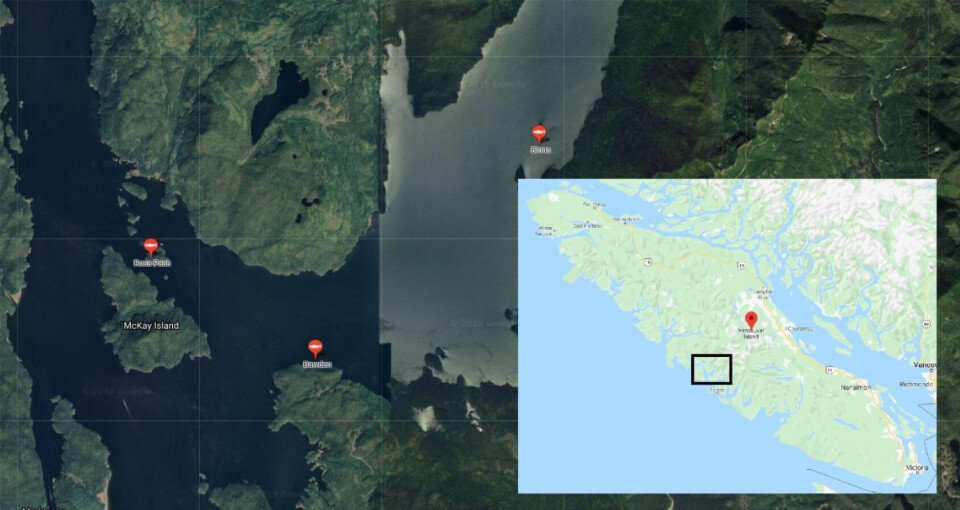
Cermaq Canada reports fish deaths caused by algae
Cermaq Canada has reported that three of its farms located along the west coast of Vancouver Island, British Columbia are experiencing mortalities due to harmful algae blooms in the area.
“Three of our farms – Binns Island, Bawden Point and Ross Pass – all located within our Tofino operating area, are experiencing harmful algae blooms which are affecting our fish,” said Cermaq Canada managing director David Kiemele.
“We are seeing two particular types of algae in these regions – chaetoceros concavicornis and chaetoceros convolutes – which are both native to the Pacific Ocean. These particular algae have rigid ‘spines’ that are harmful to fish when they come in contact with gills. Blooms are often associated with low dissolved oxygen events and warm ocean water temperatures and weather changes – all of which we are, or have been, experiencing.”

Stop feeding
Kiemele said all three farms had been taking measures to reduce the risks for fish.
“In the case of algae, we have a number of tools we can use,” explained the executive in a statement on the company’s website.
“The first is to minimise activity on the farm site to help lower any possible stress for our fish.
“We also slow or stop feeding our fish which helps to keep the fish at deeper depths, below the algae.
Upwelling system
“We are running our upwelling system which helps to pump water from deeper oceans depths into the system, which helps to dilute the algae.
“In some cases, we can use algae skirting which is a physical barrier placed around the perimeter of the farm to a depth of several metres, which helps to prevent the algae from entering the system. In this case, the algae has entered the system, so skirts would not be effective.”
Cermaq said it had earlier provided notice of the recent algae bloom and resulting mortalities to the Ahousaht First Nation, in whose territory these farms are operated, and added that the fish are improving and that the water conditions are improving.
ISA in Chile
Meanwhile, Cermaq Chile today reported that the infectious salmon anaemia (ISA) virus was detected during routine sampling at one of the pens at its Ensenada Rys seawater site located in XII Region.
There have been no signs of disease or elevated mortality.
“There are 680,000 fish just above 1kg average weight at the site at present. The company will harvest any specific pens that are positive as a preventive measure, even though they show no sign of disease,” said Cermaq Chile managing director Steven Rafferty.
The company said it will manage the situation in close cooperation with Chile’s fisheries and aquaculture service, Sernapesca.























































